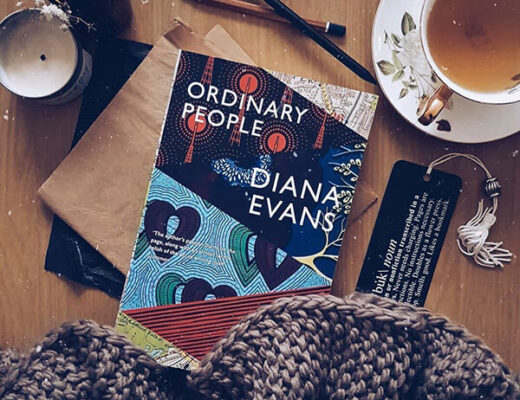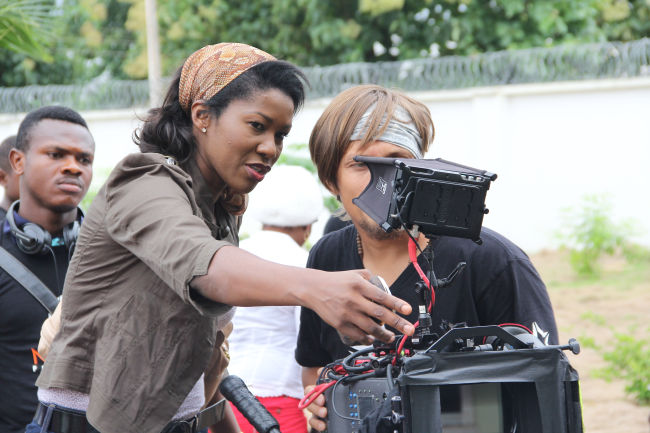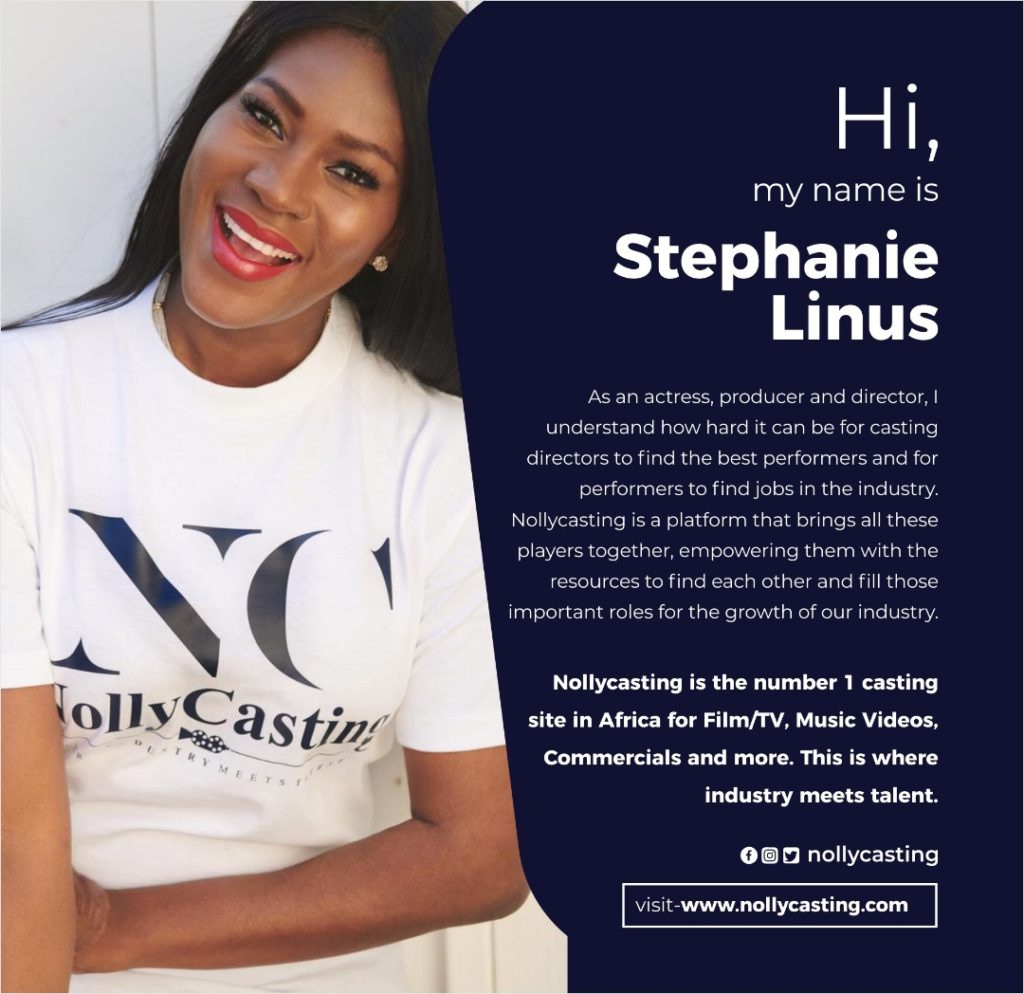Hi everyone!
I hope your week has been great so far.
I recently had an interview with Glendora Meikle, a program manager at the International Reporting Project on DRY and my campaign against Fistula. It was titled: ‘A Nigerian Actress Had An Unlikely Dream: Make A Movie About Fistula’ and published by NPR – National Public Radio.
Glendora who has previously worked at Operation Fistula, a nonprofit group that supports surgeons across Africa, and I had an interesting conversation which seems to have reawakened the conversation about Fistula among the International community.
I’d like to share the interview with you here. Do let me know your thoughts.
***
“Dry” is a tiny word with many interpretations: a well-made martini, a fluffy towel after a hot bath, a subtle wit.
But for 2 million women worldwide suffering from an obstetric fistula, “dry” means rebirth. It means the incessant flow of human waste dripping down their thighs has ceased at last, that their tenure as a social pariah has come to an end.
An obstetric fistula is a hole between the vagina and bladder — or vagina and rectum, in some cases — that develops as a result of tissue death during prolonged obstructed labor in childbirth. The hole means the woman’s urine (or, in some cases, feces) will simply leak out of her body. There is no way to control it.
Women who develop fistula are most likely to be poor, uneducated and without access to a skilled birth attendant. It persists as an insidious and under-reported condition in Africa, Asia and the Middle East. The woman could be 15 or 35. It could be her first pregnancy or her tenth. Very little connects those afflicted with the condition, aside from the act of trying to bring a life into the world.
After successful surgery for a fistula, the surgeon says, “You are dry.” And everything changes. The smell is gone. The burning, infected skin is gone. The humiliation is gone.
The punch packed into this one modest word is exactly what Nigerian filmmaker and actress Stephanie Linus, 33, had in mind when she chose Dry as the title for her new film. The film was released in the U.S. in November and is available for rent on iTunes and Amazon; this month, it was nominated for nine Africa Magic Viewers’ Choice Awards, including “best overall movie.”
Linus’ fictional protagonist is a girl named Halima who, at 13, is married off to a much older man, gives birth to a stillborn baby and develops a fistula.
For Linus, fistula is a human rights issue. I spoke with her about giving such a little-known health condition the big-screen treatment, and what she thinks needs to change in order to make eradication a possibility. Below are excerpts from our conversation.
It was refreshing to see an obscure topic transformed into a Nollywood drama. When did you first encounter fistula?
In Nigeria, we have the north and the south. My second year at university, a friend of mine came back from the north. She was telling me about young girls being married off, with the end result being fistula. The story was very strange to me, and I was like, “Are you sure this is happening in Nigeria?” The thought never left my mind that, wow, I was lucky I had access to education and that I’m able to decide what happens to my body.
So I started researching. I remember going to Sierra Leone, because I discovered [fistula is] not only a Nigerian thing. So I was just trying to figure out what I can do to help.
There have been a couple of documentaries on fistula, but I believe this is the first time it’s been framed as entertainment. Was the impetus exposure to a wider audience?
Well, the more I researched, the more I found out that a lot of people don’t know about it. So many people that I encountered were like, “What are you talking about?” So the main issue was just to bring awareness to it, and I felt a film would resonate more.
Nollywood [Nigeria’s Hollywood] is the third largest filmmaking industry in the world. So when people come for entertainment, I’m actually passing this message to them. That’s the way I could contribute.
Was it hard to secure funding for a movie about such an unappetizing topic?
It was pretty difficult. I remember talking with some organizations that dealt with fistula. They all liked the idea of a film, but nobody wanted to fund it. I was very persistent. Then I got lucky, because I got in contact with the special adviser to the president of the Nigerian government [for the Millennium Development Goals]. I approached them, like, “This falls under your portfolio.”
And then I was able to meet some of these women. I’d been able to observe some operations, and I decided to set up my own foundation called the Extended Hands Foundation [which supports surgical repairs and donates medical equipment]. And while I’m raising money for the film, I’m able to raise funds to actually repair the women who are going through it.
I’m curious about your intended audience.
I was trying to get it to resonate with everybody — Westerners and Nigerians and people in Africa. We screened it in Wales, where 30 percent of the film was shot, and everyone was bawling.
One of the things your film directly addresses: There is zero money in fistula repair. These highly skilled surgeons put themselves through years of school and training and then realize they’ll be working for principle, not pay.
When you’re listening to some of the frustrations [the surgeons] have, most of them don’t even want to get into [fistula repair] in the first place. Because most of the patients are poor, and most of the payments that they get are from NGOs. It’s only recently that the government has started to make provisions for that kind of surgery. No doctor wants to get into that field knowing they won’t get anything back. [They] need to feed their families.
Did you meet any patients who influenced your creation of Halima?
Yes, I met a very young girl, and the first time I heard her story it really blew my mind. But [elements of it are] almost the same story of so many of these women, what they’ve gone through. In the movie, the women you see in the ward are actually real-life women with fistula.
Toward the end, your character says, “The African woman can be described as the most endangered species in our world.”
Yeah. If you see this movie, we’re not just talking about fistula. My character, as a young girl, was raped and then she was forced into prostitution. There’s so many things women are vulnerable to. The life of a woman should be valued. You should be able to put the necessary laws and health care in place to actually protect them.
I’m curious what you think about the role of men in issues like fistula. Women tend to drive the conversation, sometimes talking only to each other, and I sometimes wonder if maybe we’re excluding a potentially game-changing half of the population, given that fistula is prevalent in communities that tend to be extremely patriarchal.
The funny thing is, most of the surgeons who do fistula work are men.
Right!
You can see, in the film, I also shed light on women being the cause of their own problems. They have so much power and don’t use it. The mother of Halima’s husband, who had all the power to influence his thinking, was the one who was most stigmatizing the girl. She didn’t have any empathy. Women can be the cause of their own problems, too. When we talk about female circumcision, it’s the women taking the lead. I think you have to bring both parties together. Culturally, sometimes you just need to show them, “Look, sometimes when you do this, these are the consequences that come along with it.”
I imagine the Nigeria you grew up in is very different than the one Halima experiences.
The health care system needs to improve in Nigeria. I mean, massively. People say, “Oh, you have good hospitals.” Yes, we have good hospitals. I was the victim of an accident in 2005. My leg was broken and my face got burned, and I experienced quality care. I was living in the city, where you have access. But imagine living in the rural areas. I try to show that Halima doesn’t have access to good medical care. And then maybe [even if she gets to a hospital] they’re not equipped, or there’s only one doctor attending to thousands of women. There’s a whole lot of constraints, and that’s where we need the government to come in.
Along the same lines, you portray a number of social realities that some might think are stereotypical views of Africa: child marriage, rape, extreme patriarchy, lack of education. Were you concerned about the image you were presenting for people who weren’t educated about Nigeria?
I thought about that, but I had to be real. Nigeria is a beautiful country, there’s so many opportunities. But also there are some realities in the culture that people don’t want to talk about. Nigerians, they’re very well-educated people, they’re smart, they’re hardworking. We just need to put the basic things in place. We don’t need much. Just give us the basics, and then we’ll fly. So I decided to say it the way I saw it. It’s not the whole Nigerian story, but this one just needed to be told.
It seemed like the need for education was also an underlying point of your film.
Education is huge. Those young girls, just give them the basic education. If we make sure she’s well-informed, she can manage. But if she’s ignorant, she doesn’t know what to do. And for the parent who wants to marry off her daughter, they need to learn to pause and say, “Maybe I should allow the girl to grow up a little bit.” If we educate people, it will stop the backlog of [cases]. We already have so many with fistula. [We need to prevent] more people from falling victim.
You can also read the interview on the NPR Website.







1 Comment
Racheal Edward
January 18, 2016 at 4:19 amGod bless u aunty steph for the good work